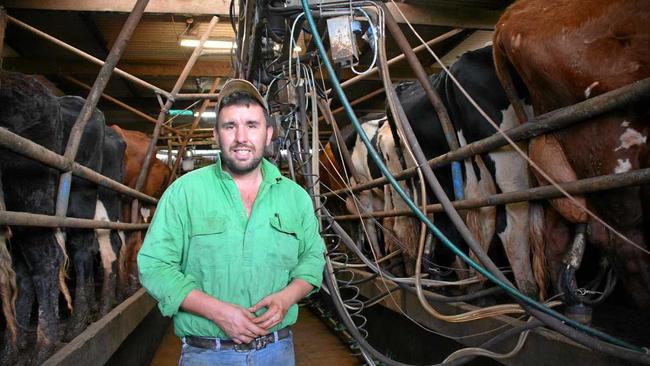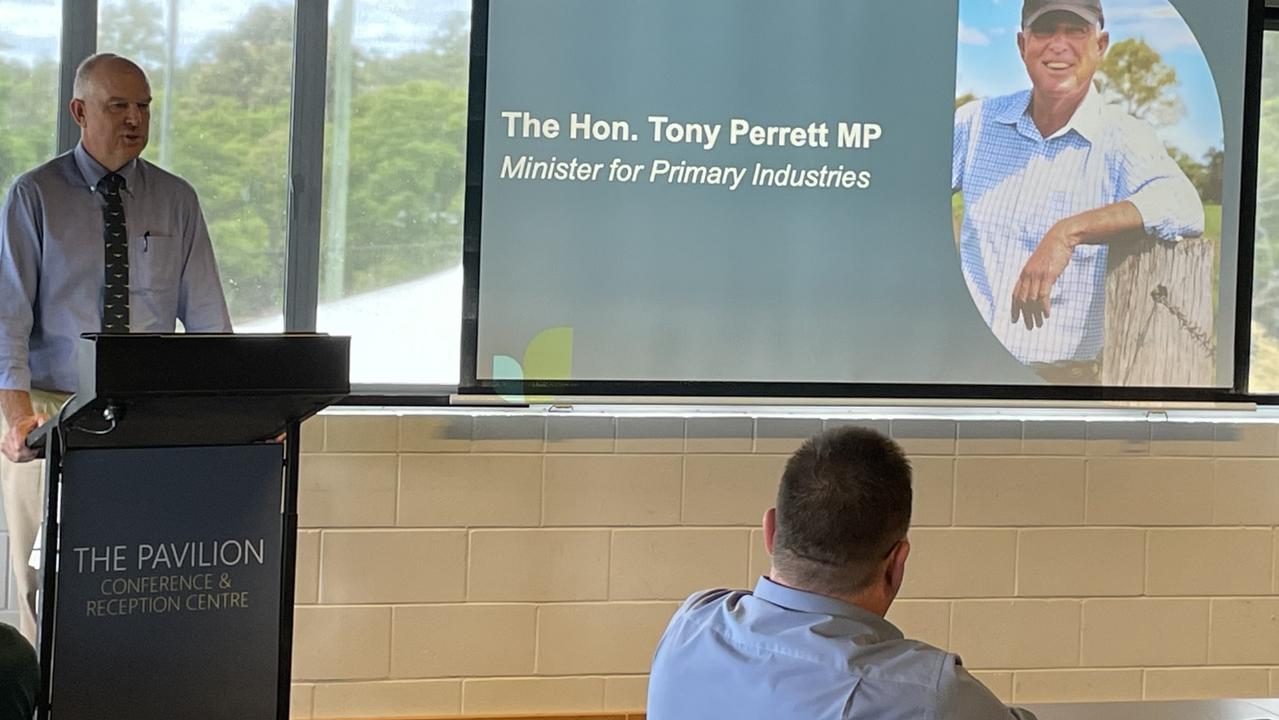Queensland dairy farmer calls out drought relief milk
Too little too late: Coolabunia farmer believes supermarket drought relief milk doesn't cut it.

South Burnett
Don't miss out on the headlines from South Burnett. Followed categories will be added to My News.
WOOLWORTHS supermarkets have been stocking up their shelves in New South Wales, Queensland, Victoria and the ACT with their drought relief milk range since last week.
The limited-edition range offers customers the option to buy Woolworths full cream and Woolworths lite milk varieties at $2.20 for two litres, and $3.30 for three litres, with the extra 10 cents per litre going to dairy farmers in drought-affected areas.
The drought relief effort was first launched with Woolworths' three-litre milk bottles last month and has already raised about $500,000 for drought-stricken dairy farmers.
"We've sent our first drought relief payment to Parmalat and will be working closely with them to ensure relief starts to flow through to drought-stricken dairy farmers as quickly as possible," Woolworths director of fresh food Paul Harker said.
Meanwhile, Woolworths will still be selling its standard two-litre milk range for customers at the usual $2.
Local dairy farmer Damien Tessmann is not convinced the limited-edition drought relief milk is the support Queensland dairy farmers have been hoping for.
"Woolworths is obviously only offering this on their brand of milk, and Coles is only offering farmers 10 cents a litre from their three-litre bottle sales, which isn't a very popular size to buy in the first place," Mr Tessmann said.
"By offering farmers 10 cents a litre from each bottle sold on their own brand of milk, Coles and Woolworths are just continuing the issue of dollar-a-litre milk and the problems that come with that."
The Tessmann family has been producing milk in the South Burnett area for 120 years on their Coolabunia property, and believe they are going to be able to continue to have a long-term commitment to the dairy industry.
But Mr Tessmann does not deny the industry has been negatively affected by the big supermarkets' dollar-a-litre milk scheme.
"It's a very complicated situation but it's definitely not the support that farmers were chasing and it's not an offer that's being distributed by dairy farmer advocacy groups," Mr Tessmann said.
"When it's dry and the cost of production goes up it's imperative the dairy processors remain profitable ... but when the major retailers such as Coles and Woolworths are controlling 63 per cent of the milk industry, it's very anti-competitive, especially when you have milk being sold below the cost of production."
Woolworths' drought relief funds made through the sales of their milk is being distributed to New South Wales and Queensland dairy farmers by Parmalat, with the independent oversight of its Drought Relief Committee.
"We source fresh milk from some of the most drought-affected parts of Australia and know many of our dairy farmers are really feeling the effects of drought," said Parmalat Australia CEO Craig Garvin.
"We're pleased to be working with Woolworths in support of our dairy farmers through these difficult conditions."
Parmalat began distributing the monthly payments to more than 220 dairy farmers across New South Wales and Queensland on Monday.
"We understand this won't fix the structural issues in the dairy industry and note the Federal Government is pursuing reforms proposed by the ACCC earlier this year," Woolworths' Mr Harker said.
Funds will be distributed to dairy farmers each month via their milk cheques, based on the volume of milk they provide to Parmalat, with a minimum safety net of $1000 per month for smaller farmers.
Mr Tessmann believes at the end of the day, consumers needed to ask themselves one question when it came to choosing their next bottle of milk: "Do you want to have locally produced fresh Australian milk available to your family in the future, or will you be happy to put up with imported, or even powdered milk?"


